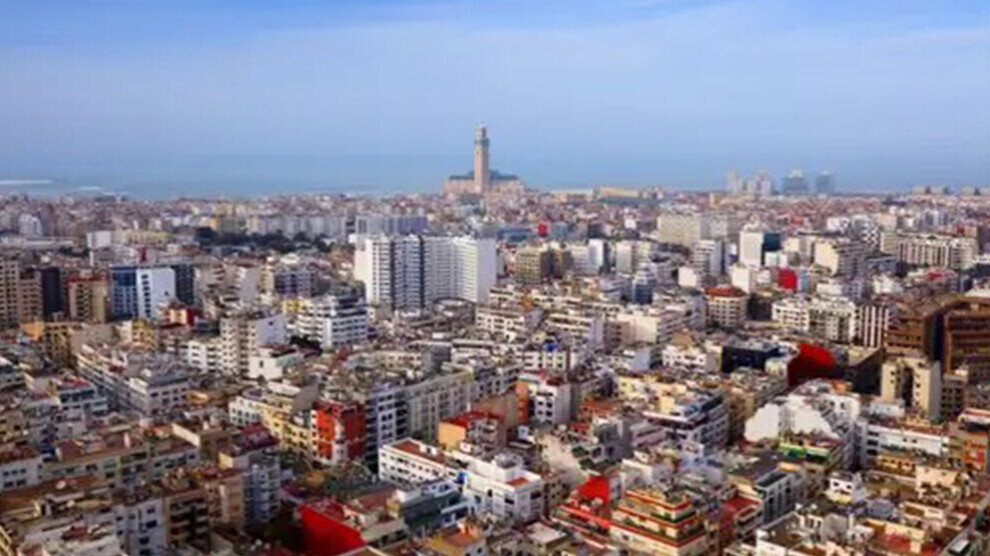The Case of Iman Bouzouada in Morocco: A Concrete Example of Impunity
The assault on Iman Bouzouada by her ex-husband has reignited debates on violence against women in Morocco. Women’s organizations draw attention to inadequate penalties and the lack of protection mechanisms.

Morocco – In the Taza region of Morocco, 25-year-old Iman Bouzouada was attacked and severely injured by her divorced man due to the lack of adequate protection mechanisms.
Iman Bouzouada’s story is not just an individual incident in the context of increasing violence against women in Morocco; it also reflects the suffering experienced by many women. In the prime of her life, dreaming of realizing her own projects, Iman Bouzouada was raped by a man. This assault not only caused physical and psychological trauma but also resulted in an unwanted pregnancy.
Pressure from society and family
When Iman Bouzouada filed a complaint, the perpetrator was arrested for rape. However, due to family pressure, she was forced to withdraw her complaint. As a result, the perpetrator’s sentence was reduced to one year.
Under pressure from her family and society, the young woman was forced to marry her rapist. For six months she endured all kinds of violence and humiliation within the marriage. Eventually, she demanded a divorce, but herman she lives with attacked her with a sharp object, injuring various parts of her body. As a result of the attack, the nerves in her hand were severed.
Abandoned in an isolated place, tortured
According to Iman Bouzouada, one day her divorced man forcibly took her with her child to an isolated house, confiscated her phone, cut her hair, starved her, and beat her. Managing to escape, the young woman took refuge with her family and reported the incident to the judicial authorities. However, after the complaint, the perpetrator waited in front of her house, insulted her, and pressured her to withdraw her complaint. When she refused, her divorced man attacked her with a sharp object, inflicting heavy blows to her face and hand. Deep wounds were opened on her face, and her nerves were severed.
Iman Bouzouada said that because of the deep wounds on her face, her child could not recognize her and was frightened. She also stated that she demanded both medical and psychological support, and called for justice to be served with the perpetrator receiving a heavy sentence.
‘Unfortunately, there are many “Imans”’
Lawyer and President of the Moroccan Association for Supporting Victims, Aïcha Kalaa, stressed that this attack is an extremely serious crime, saying: “Unfortunately, there are many ‘Imans.’ We should not forget the cases of Sanae from Tiflet, who was subjected to violence in a similar way, and Amina Filali, who committed suicide after being forced to marry her rapist.”
Aïcha Kalaa recalled that despite the adoption of laws to prevent violence against women, there are serious shortcomings in practice. She noted that Law No. 103-13 on the “Prevention of Violence Against Women,” which came into force in 2018, has not solved the problem, and cases of violence continue to rise.
She also emphasized that although Article 475 of the Penal Code, which allowed a rapist to escape punishment by marrying the victim, was abolished, in practice victims are still forced to marry their rapists, and the same painful scenarios continue.
‘Penalties are not deterrent’
According to Aïcha Kalaa, Moroccan courts impose extremely light sentences in cases of rape and violence. She pointed out that in cases of rape against underage girls, sentences often do not exceed 1.5 years, and in cases of attacks against adult women, perpetrators receive symbolic prison terms of only about 2 months.
This culture of impunity, she said, causes violence to spread: “The judge, the police, and society itself normalize this violence.”
‘The judiciary must act more effectively’
Aïcha Kalaa stressed that in order to protect women from violence, not only laws but also practical protection mechanisms must be strengthened. She emphasized that the judiciary and security forces must work more effectively, and the state must show genuine will to protect victims before and after filing complaints.
Finally, Aïcha Kalaa said that in cases of violence, it is not enough to issue press statements, but that urgent concrete measures must be taken to protect women’s lives.
